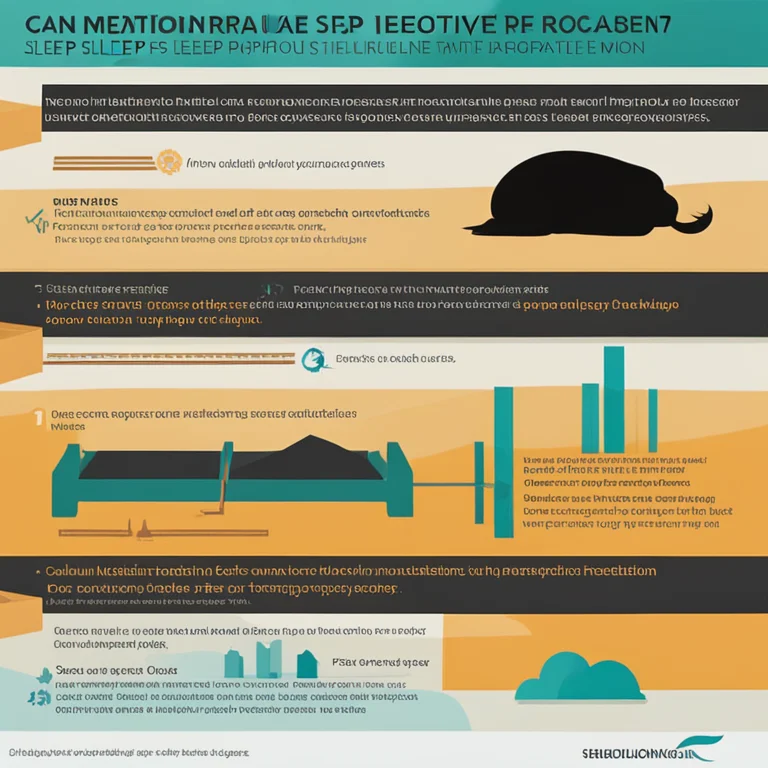
How Meditation Substitute Sleep?
Uncover the truth behind meditation's potential to replace traditional sleep, and what experts say about rest and rejuvenation for the mind and body.
article by Hina Kurosawa
Introduction to Meditation and Sleep
For centuries, meditation has been used as a tool to calm the mind and enhance overall well-being. Amidst our fast-paced world, it stands as a haven for those seeking tranquility. Meanwhile, sleep serves as a fundamental pillar of health, imperative for physical restoration and cognitive function. In recent years, a provocative question has emerged: Can meditation serve as a substitute for sleep? As more individuals explore holistic health practices, the boundaries between ancient techniques and modern science continue to blur, evoking both curiosity and skepticism. This article delves into the capacities of meditation in comparison to sleep and sheds light on what the latest research reveals.

Scientific Insight on Sleep Necessity
Sleep has been intensely studied by the scientific community, and its necessity for human health is incontrovertible. During sleep, the body repairs tissues, the brain consolidates memories, and hormones that regulate growth and appetite are released. The consequences of sleep deprivation are severe and include impaired judgement, weakened immunity, and an increased risk of chronic conditions. No matter the advancements of the era, the recommendation of 7-9 hours of restful sleep for adults remains a pillar of health guidelines. Researchers in 2024 continue to investigate sleep's complex role, emphasizing its irreplaceable function in maintaining life's balance.

Meditation's Restorative Qualities
Meditation's popularity has grown exponentially, with many enthusiasts reporting feelings of rejuvenation akin to sleep. Benefits such as reduced stress, improved focus, and a sense of inner peace are just a few reasons meditation is considered a powerful practice. Studies have linked meditation to enhanced attention, better emotional regulation, and even structural changes in the brain. It stimulates the parasympathetic nervous system, which can induce a state of restfulness. In 2024, with stress levels soaring, meditation is often dubbed a 'wakeful rest', potentially offering recuperative effects without the deep states of unconsciousness that come with sleep.

Is Meditation a Sleep Replacement?
Despite meditation's restorative qualities, the question remains: Can it replace sleep? Experts categorically state that meditation, no matter how profound, cannot fulfill all the biological purposes of sleep. The cellular repair and memory consolidation that occur during different sleep cycles are unique to the sleep state. While meditation can reduce stress and provide temporary relief from fatigue, these benefits do not translate to the full spectrum of physiological restoration sleep provides. Advanced meditation practitioners, such as yogis or monks, may require less sleep than the average person, yet they still obtain some sleep to maintain optimal health.
Meditation as a Sleep Aid
Rather than being a substitute, meditation complements sleep. Techniques like mindfulness meditation before bedtime have been shown to improve sleep quality, assisting people in falling asleep faster and reaching deeper sleep states. Introducing a meditation practice helps combat insomnia and promotes a more restful night. As we move further into the decade, technology even aids this synergy, with apps providing guided meditation specifically designed for sleep improvement, underscoring meditation's role as a facilitator of better sleep rather than a replacement.
Recommendations for Holistic Rest
For those interested in holistic health practices including palmistry, astrology, and other spiritual sciences, it's clear that meditation and sleep serve distinct yet complementary roles in our lives. Incorporating meditation into daily routines can significantly impact mental health and can be a supportive tool alongside getting adequate sleep. As experts will attest, combining regular sleep with a meditation practice presents a balanced approach to rest—each with its irreplaceable benefits to the mind and body.
Published: 1/9/2024
Modified: 1/9/2024
More predictions
Come back here soon to learn more about yourself and your future


Retreat Into Serenity: A Guide to Meditation Getaways
Discover the transformative power of meditation retreats and how they can rejuvenate your mind, body, and soul.


The Harmony of Meditation and Sleep
Discover the synergistic benefits of meditation for enhancing sleep quality and overall well-being in this insightful article.


The Serene Path: A Guide to Meditation Retreats
Discover the transformative journey of meditation retreats and how they can enhance your spiritual practice in a serene environment.